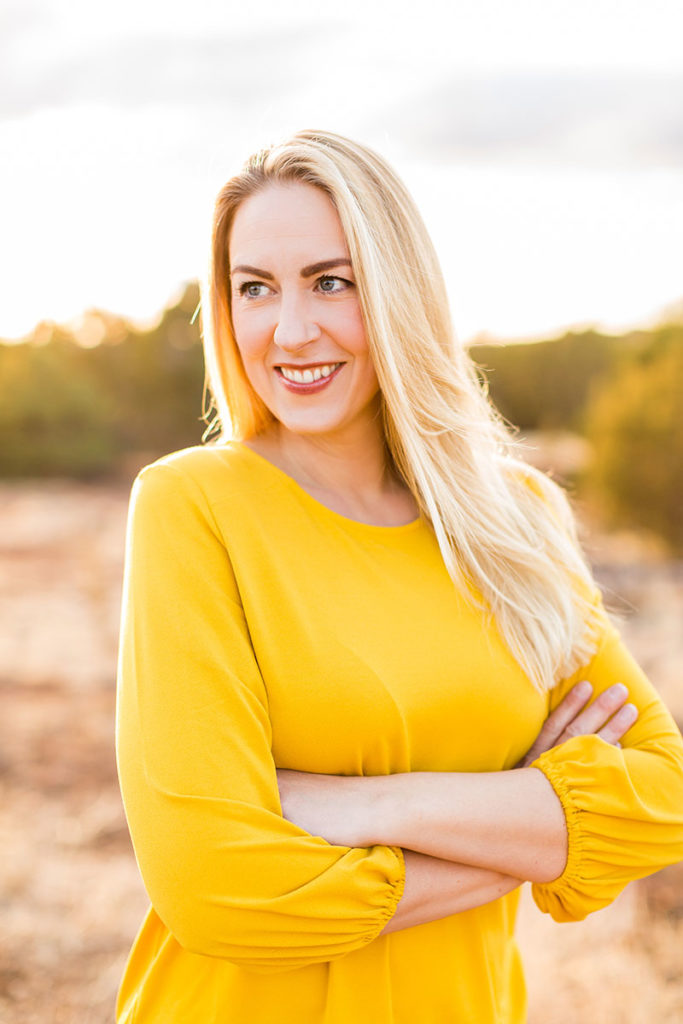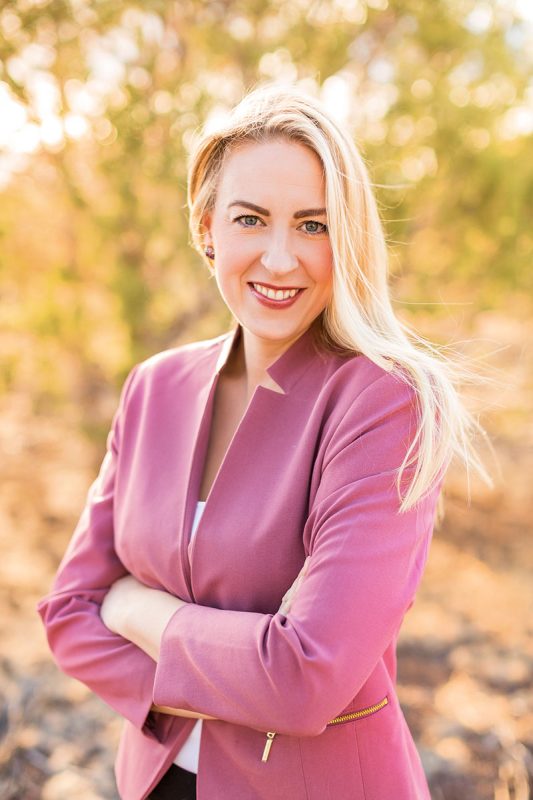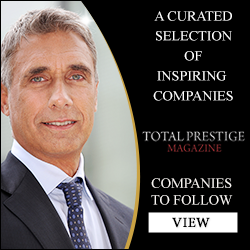April White pursued a career in journalism due to her love of writing. She found success as a journalist with a specialty in crime reporting. But after years of writing about crime and punishment, White found herself growing more cynical about people.
Needing a change and to distance herself from the stories she had been reporting on, White moved into public relations. It allowed her to continue writing and to paint pictures with words, just as she had as a journalist. Turns out, White was perfect at her new job and she quickly progressed within the industry.
In 2014, White founded her very own company, allowing her the freedom to take the reins of all strategic business decisions. Trust Relations is the result of White’s hard work in the industry and her vision of what a public relations firm should be. Specializing in strategic, integrated, brand-focused corporate and consumer messaging, brand positioning, public relations and business writing, White has help companies grow, scale, and reach new clients.
She recently sat down to speak with Totalprestige Magazine about Trust Relations and her career in public relations.
April, what inspired you to start your own company after years of working for public relations firms?
I don’t believe public relations, in its traditional form, is relevant anymore. Spinning the story, controlling the narrative and staging public stunts for media coverage is a thing of the past. Today’s audiences are savvy and discerning, and they quickly disregard anything that’s not based in truth and reality.
I’m not going out on a limb in saying this, either. According to a recent study from The Holmes Report and the University of Southern California Annenberg School for Communication and Journalist, nearly 90 percent of PR executives believe “public relations” won’t accurately describe what they do in five years.
So, I founded Trust Relations as a response to this important shift, and to take the industry where I think it needs to go. Our focus now, as publicists, should be on helping clients build trust among their key audiences by publicizing what they are doing to serve them—and being brave enough to tell them when they might need to do more.
Weaving a spellcasting narrative out of thin air is not in the best interest of anyone. But showing target audiences how a brand is putting their money and creativity behind their values is. When a brand—or person, for that matter—finds its core values and integrity, everything it does flows out of that solid, authentic center. This kind of consistent and uninterrupted authenticity attracts like-minded people with similar values, and lays the foundation for the impossible to be made manifest.
In technology, trust relationships are an administration and communication link between two domains. In communications, I see trust relationships as a bond of mutual respect between a brand and the people it serves.
That’s why Public Relations, which implies that a brand is the actor and the public is its audience, is passé. Brands today should ask what they can do for their key audiences, not how much more they can get out of customers for less.
This is the inspiration behind Trust Relations, which I see as an exciting way forward within the strategic communications sector.
What is the biggest difference in running your own company as opposed to working for a public relations firm?
It’s easy to play the armchair critic and take shots at management from the cheap seats when you’re working for an agency. It’s also easy to get lost in the negativity of how things should be done differently, and feel helpless to change them.
Having the courage to start your own firm and do it the way you always wished someone else would do it is about the hardest thing imaginable. It’s hard for a bunch of obvious and practical reasons. But it’s also hard for reasons I didn’t foresee: I had gotten secretly addicted to someone else driving, so I could sit back and foot drag or resent them when I felt pushed too far or taken for granted. Now, I am the driver and have no one to blame but myself.
If the company or the culture is not working, it’s a reflection of me. Essentially, this agency now acts as an amplifier of my internal world. So, there is very little margin for error before any missteps are painted in living color before me—in every direction.
What sets Trust Relations apart from competitors and what can clients expect when working with you?
We are straight shooters, critical thinkers and hard workers who are equally creative, positive and intuitive. Everyone working at the agency has goodwill and a true desire to serve clients, each other and the greater good. This is the central spirit of the company, and our two core values are authenticity and goodwill. We are as strategic as we are creative, and we’re great at helping clients come up with creative ways to tell their stories and demonstrate how they are making the world a better place by serving their key audiences.
We are also a virtual firm, and have no immediate plans to create a central office. This enables Trust Relations to hire the best person for the job, regardless of where he or she is located, find individuals who are a great fit with the culture, and ensure everyone at the agency is able to live the life outside of work that he or she wants to lead.
It also means that the results do the talking—not the time of day someone shows up to or leaves the office, or how many hours he or she spends glued to a desk. In my experience, I work much harder and get much more done at home—without office distractions or worrying about my outfit for the day—than I ever did going into the office five days a week.
Along those lines, I would say the other thing that sets us apart is that we all strive to maximize the time we spend driving results and minimize the time we spend talking about how to do the work, scheduling meetings, or waiting for clients to provide more information or direction. We are resourceful and intuitive, and we always run with what we have until we’re given more.
You are a journalist turned communications specialist. How did you make that transition and what was the catalyst for making the change?
I was a crime reporter at The Des Moines Register and I covered a number of horrific stories. I had to sit at the back of funerals and report on them and call up people whose family members had just died. I even got a murder confession from someone in prison and was subpoenaed to talk about it—in front of him. I began to have nightmares and feel very disenchanted with mankind in general, and it all started to take its toll on me in many ways.
In addition, I found that whenever I did a great job writing a balanced story, sources from both sides would be unhappy that I included the opposite view. I am a people pleaser by nature, and I found this beyond unsettling.
I realized that switching to public relations would enable me to continue to write, which is what led me to become a journalist in the first place, but also to become an advocate for one side of an issue rather than feel caught in the middle.
I began as a technical writer and eventually made my way into media relations, since I had a background in writing stories and knew what went into a good one. This laid the foundation for me to grow into more of a strategist, so I could ensure the stories I was crafting on behalf of clients really served their business and marketing strategies.
Do you see more journalists making the step into PR, communications, and marketing these days due to the money that can be made as opposed to in newspapers or television news?
There is definitely a joke among journalists that when someone jumps ship and goes into PR, they have gone to the “dark side.” I used to tease those who accused me of this that I had gone to the “green side.”
I was actually more aware of journalists making the jump into PR back when I did, when many of the major news outlets began laying off large numbers of people. But maybe that’s because I was hyper aware of it, given that I had just “sold out,” according to my former peers.
April, your career in public relations began in the mid-2000s. What are the biggest changes you have seen within the industry?
There was no such thing as social media influencers back then and bloggers were not even on the radar. It was all about major newspapers, magazines and television. The really interesting thing is, although many clients still view a story in The New York Times as the ultimate goal, many alternative news media sources actually have bigger followings than traditional outlets.
For example, the “Joe Rogan Experience” podcast interview with Elon Musk has been viewed 19,571,164 times since it was posted in September 2018 while the daily reach of The New York Times print edition is 483,701. Similarly, Zero Hedge, a blog that covers banking, the economy, Wall Street and the federal government, has 11,819,236 unique viewers per month while Fortune online has 7,691,559 unique viewers per month.
This is going to be incredibly important for publicists to stay on top of, as the channels of influence continue to morph and shift. In other words, maybe a story in The New York Times is still the ultimate “placement” for a client, but maybe it’s not.
The other thing I’ve seen change in recent years is an explosion of “contributors” within print and online media. By accepting articles written by contributors, media outlets can provide more content without necessarily paying for it, as they continue to reduce their full-time editorial staffs. This is a great way for individuals and entrepreneurs to advance themselves as thought leaders in their respective fields, if they are accepted as a regular contributor to a publication. However, it has also made it very complicated for publicists to pitch a story to a Forbes contributor, for example, who might only be interested in promoting his or her own agenda.
Can you explain how Trust Relations works with a client from the first consultation onwards?
First, we find out what a client’s most pressing needs are and discuss how we can support them in achieving their immediate and long-term goals. If we need to dive into the fire and circle back to creating a press kit in a month, we do that.
If there are no fire drills or immediate needs, we begin by creating a strategic messaging matrix that outlines all of the client’s key points of differentiation from competitors and overall value proposition. This includes a messaging hierarchy that maps all of the key messages back to the brand or personality in question. By doing this we can ensure that a) all of the language we use in media pitches and materials is consistent and already approved, saving everyone time and b) as key messages or proof points change, we can make edits to the master document and consistently reference that rather than accidentally pulling outdated facts and phrases from an old release.
Once that roadmap is in place, we use it as a jumping off point for everything else—story ideas to pitch media, inspiration for creative brand activations, the blueprint for strategic partnerships, the foundation of proposed speaking topics, etc.
What makes a good public relations and communications writer? Does it help to have a background in journalism?
Having a background in journalism definitely helps. Being able to convey something in writing by showing, not telling, is critical. Otherwise, it just reads as nonsensical marketing fluff without any substance.
That said, being able to color in the facts and straightforward language with some vibrant words and phrases that subtly map back to the brand tone of voice and point of view is also critical. The marketing team at that company has done a lot of research and hard work that led to the sales phrases they use, so they can’t be ignored.
A great strategic communicator and public relations writer knows how to use language in a way that will please the marketing team but also speak to journalists. You essentially have to speak both languages and then write in a hybrid tongue.
In addition, you have to be able to anticipate how any word, phrase or juxtaposition of concepts could be misconstrued by a skeptic or anyone who might wish your client ill—for example, a competitor who might be secretly hoping for a misstep that can be capitalized on and used to their advantage.
What are some of the biggest mistakes that companies make in terms of PR and communications these days?
I think the biggest mistake that companies make today is in wanting to get press for the sake of it without having anything concrete to communicate with key audiences. If there is no integrity or value behind a narrative, audiences today will know—or soon find out.
When a company is providing a service, product or platform that truly serves an existing need or makes the lives of its target audience easier or better, then it has something to share via the media.
But wanting to get a bunch of press mentions so you can become an overnight sensation is just not realistic. It takes time and a consistent effort to build a bond of trust with key audiences. It takes time and consistency to demonstrate value. And it takes time and consistent communication to build a reputation in the media.
In other words: Companies who don’t value their key audiences as much as their bottom lines are about to get left in the dust.
April, what is a day in your life like?
I work from my home on an acreage outside the Grand Canyon in Northern Arizona now, even though I am constantly connected to both coasts and many states in between throughout the day. I have a menagerie of animals who are a constant source of joy and laughter, and whose interspecies friendships never cease to inspire me. My youngest cat has a crush on one of my dogs. One of my dogs used to sleep next to one of my bunnies. And one of my dwarf goats wants to grow up to be one of my dogs.
It’s possible I will someday write a book about how everything I know about managing a team comes from learning to manage a house full of animals. But I need to figure out how to manage a team as well as I can train animals before I can even think about that.
I definitely work more hours than I should, but the great thing is I can hike from my back door to a nearby canyon at a moment’s notice, I have a yoga studio in my house with a TV that streams YogaWorks.com, and I can hot tub under more stars than I’ve seen outside of a planetarium. So, I can immediately drop into vacation mode and relax, whenever I find the time.
What is something most people don’t know about you?
I love to sing and write songs. I have been singing for as long as I can remember—but not very well. I finally took voice lessons in my 20s and began to sing with some confidence and skill. Now, I will go karaoke anytime someone will go with me—or, sometimes, alone. In fact, what I most like about living on 13 private acres is that I can sing outside, under the sky or in the trees, at the top of my lungs, without anyone hearing me.

What makes you smile?
My animals are definitely at the top of the list. And Sun Basket’s amazing meals that make me feel like I’m a great cook. Also, the Arizona sunsets that paint the entire sky in vibrant, complex hues I’ve only seen in photographs.
What scares you?
I had a mountain lion on my property last year and a rattlesnake in front of my kitchen door. Now that I’ve dealt with both, I can’t think of anything.
Do you have any hobbies?
Writing and producing music.
Which historical figure do you most admire?
Thomas More and Shakespeare
Can you share two of your favorite quotes with us?
“You never change things by fighting the existing reality. To change something, build a new model that makes the existing model obsolete.”
― R. Buckminster Fuller
“Don’t try to be better than your contemporaries or predecessors. Try to be better than yourself.” –William Faulkner
If you had the power to change just one thing in the world what would it be?
Myself. Continuously.
For more information on April White and Trust Relations, please visit https://www.trustrelations.agency/.
Images credit: Saaty Photography











